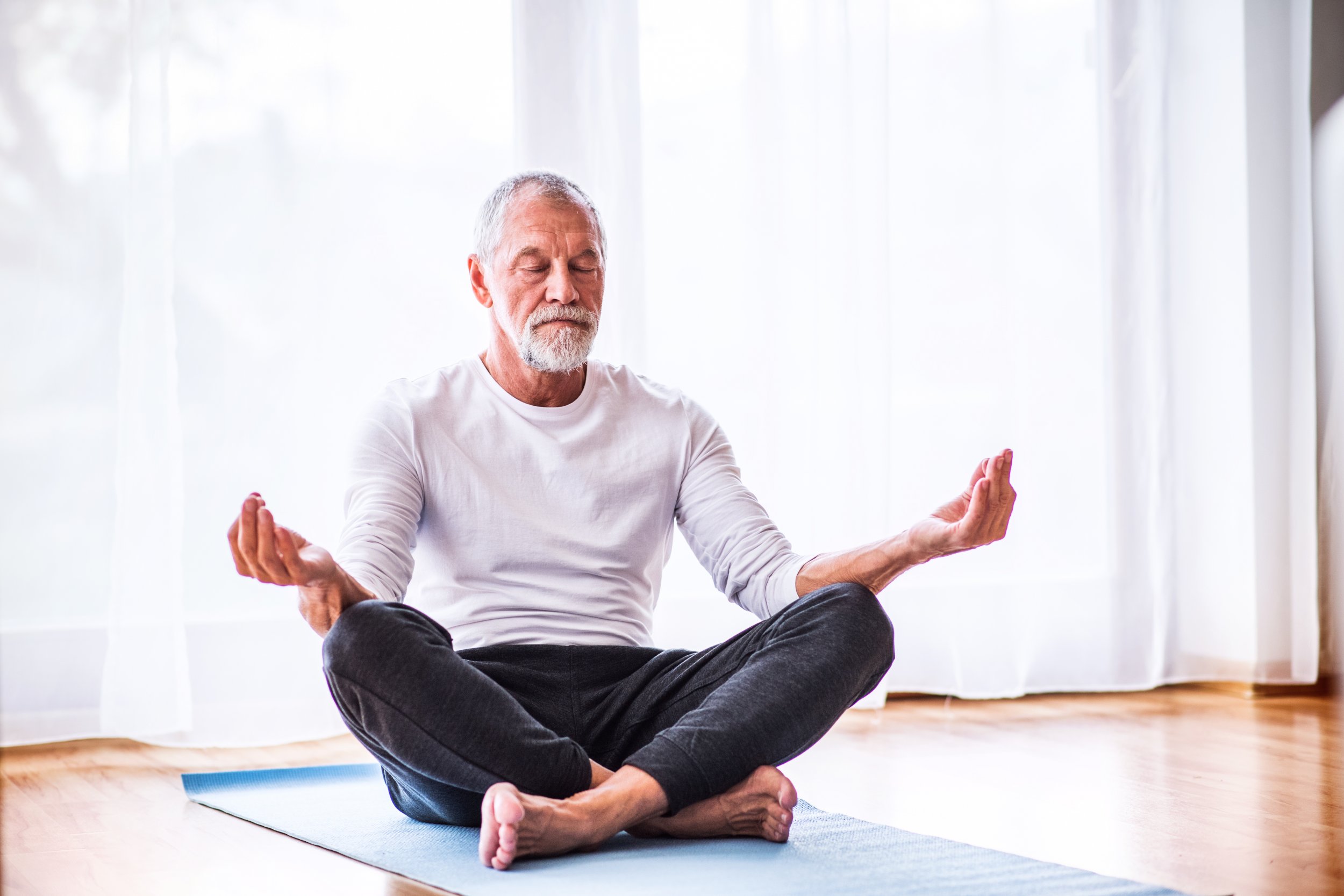
Meditation is not a panacea for all ills, and its benefits may have been exaggerated. That's according to the co-author of a new study that found one in four people who meditated reported "particularly unpleasant" experiences.
Some 18 million people in the U.S. alone mediate, and most studies have looked at its potential mental and physical benefits. According to the Centers for Disease Control and Prevention, the percentage of adults who meditate in the U.S. has risen from 4.1 percent in 2012 to 14.2 percent in 2017.
Most types of meditation involve sitting undistracted in a quiet, comfortable place, with attention focused on breathing or words, while allowing thoughts to pass without evaluating them. Studies have linked meditation to reducing high blood pressure and the symptoms of irritable bowel syndrome, as well as anxiety and depression.
But some past studies have suggested that meditation may bring up uncomfortable feelings, while vivid accounts of unpleasant experiences are documented in traditional Buddhist texts.
The authors of the study, published in the journal Plos One, asked 1,232 people who meditated regularly for at least two months whether they had had any unpleasant experiences engaging in the practice, taking into account such variables as age, how long they had used meditation and if they had attended a meditation retreat. Whether they had had repetitive negative thoughts and had shown self-compassion was also noted.
The respondents, whose average age was 44.8, answered the question: "Have you ever had any particularly unpleasant experiences (for example, anxiety, fear, distorted emotions or thoughts, altered sense of self or the world), which you think may have been caused by your meditation practice?"
Of the total number of participants, 315—or about 25 percent—said they had a "particularly unpleasant" experience related to mediation. It wasn't clear why, but these experiences were less common in women and in those who said they were religious, but more frequent in those who engaged in repetitive negative thinking, and who carried out deconstructive mediation techniques. These include vipassana, in which participants are trained to scan the sensations in their body and focus on the sensations for long periods of time.
Deconstructive meditators were 65 percent more likely to have had an unpleasant experience compared with those who chose other approaches.
The team didn't find a link between how long a person had meditated, the frequency with which they used the technique and their total lifetime experience with the technique.
Study co-author Marco Schlosser, a research assistant in the division of psychiatry at University College London, told Newsweek: "Meditation is not a panacea, and its benefits might have been exaggerated; we should now be equally cautious not to encourage premature conclusions about its potential negative effects."
He continued: "Recent reports linked meditation with instances of anxiety, panic and the worsening of existing symptoms. Little is known about why and when these experiences arise, or how common they are. Ours is the largest study to offer a clear prevalence estimate of unpleasant meditation-related experiences in regular meditators."
The team was surprised by how many people reported having unpleasant mediation-related experiences, but pointed out that the study—like all research—had its limits. The researchers didn't assess possible pre-existing mental health problems of the participants, and asked only one question. The list of emotions (such as anxiety) for them to draw on may have made their responses biased. And as the study was cross-sectional, the team could not draw a conclusion on whether meditation caused the uncomfortable feelings.
Asked whether the effects were long-lasting, Schlosser said the data didn't give an indication of the severity, type or the long-term impact of unpleasant meditation-related experiences.
"We can build on this research with longitudinal studies, which will help to learn when, for whom and under what circumstances these unpleasant experiences arise," he said. "This future research could inform clinical guidelines, mindfulness manuals and meditation teacher training."
Gemma Griffith of the Center for Mindfulness Research and Practice at Bangor University, U.K., who was not involved in the study, told Newsweek that as the study only looked at whether people answered "yes" to the questions, it was hard to draw conclusions beyond that unpleasant experiences are not uncommon.
"The range of potential experiences this may cover is huge," she said, "from rather mild experiences such as people experiencing a pain in their knee for 20 minutes because they are sat still in an uncomfortable position—a very common experience—to people that may have had an experience which exacerbated a mental health problem or had long-term impacts. We simply don't know and thus need to be cautious when drawing conclusions.
"Because those who had higher levels of repetitive negative thinking were more likely to report unpleasant experiences, it may be that those reporting unpleasant experiences may be more susceptible to them as they may be less likely to disengage from repetitive negative thinking. Also, we do not know if these participants have a pre-existing mental health condition."
Griffith advised those thinking of starting meditation to find an established course, to complete an introduction and make sure their teacher has the necessary qualifications.
This article has been updated with comment from Gemma Griffith.
Uncommon Knowledge
Newsweek is committed to challenging conventional wisdom and finding connections in the search for common ground.
Newsweek is committed to challenging conventional wisdom and finding connections in the search for common ground.
About the writer
Kashmira Gander is Deputy Science Editor at Newsweek. Her interests include health, gender, LGBTQIA+ issues, human rights, subcultures, music, and lifestyle. Her ... Read more
To read how Newsweek uses AI as a newsroom tool, Click here.








